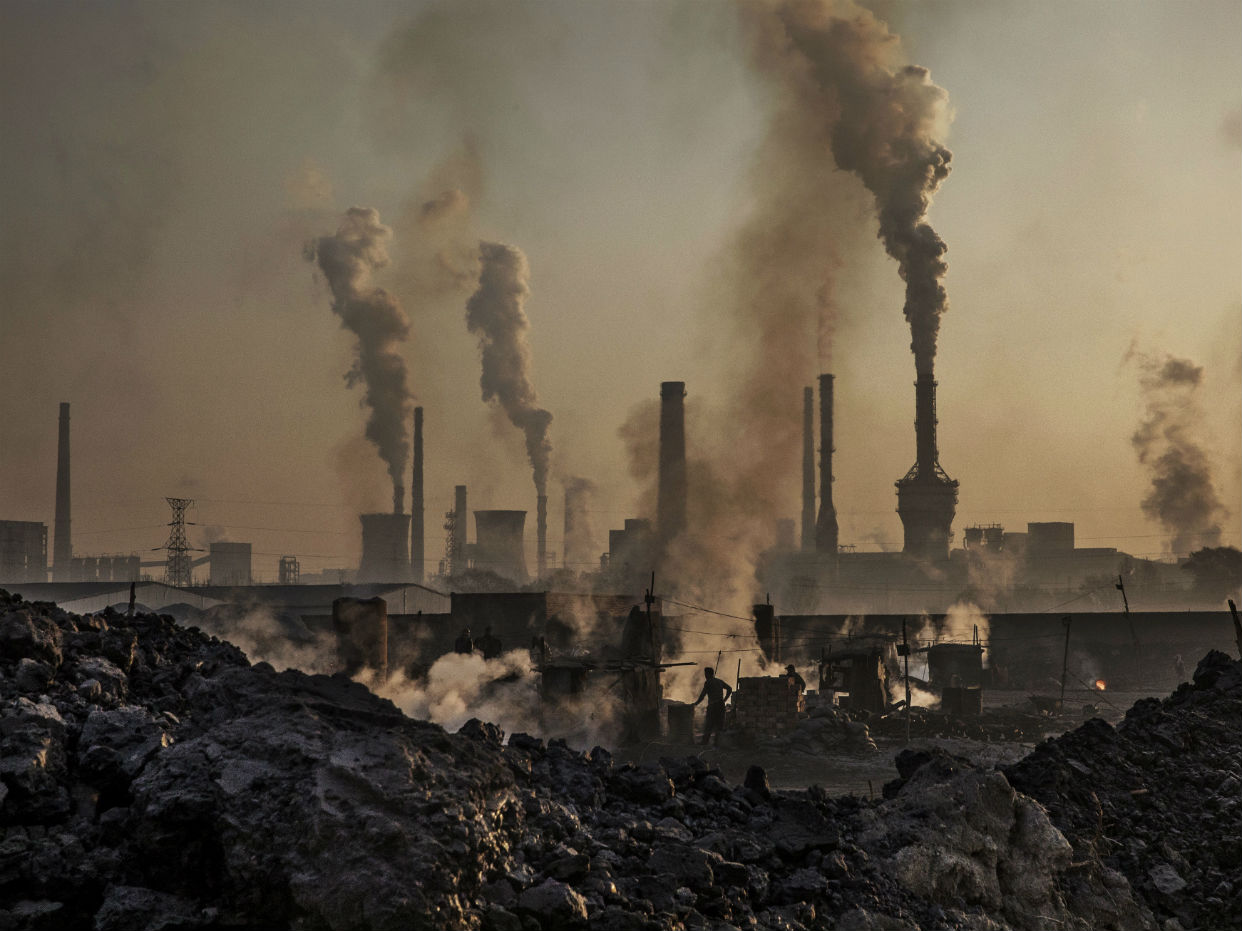‘Vicious cycle’ as wild weather increases carbon emissions
BP warns that extreme conditions raises demand for fossil fuels

A free daily email with the biggest news stories of the day – and the best features from TheWeek.com
You are now subscribed
Your newsletter sign-up was successful
Extreme weather last year stoked demand for fossil fuels causing carbon emissions from the global energy industry to rise at the fastest rate in almost a decade, warns BP.
The oil company said its analysis showed that global energy demand and emissions grew faster than expected last year, mainly due to “an unusually large number” of hot and cold days causing an increase in demand for heating and air conditioning.
This means the planet may be facing a “vicious cycle”, The Times says, in which extreme weather caused by climate change “drives up energy use for heating and air conditioning, further increasing planet-warming emissions”.
The Week
Escape your echo chamber. Get the facts behind the news, plus analysis from multiple perspectives.

Sign up for The Week's Free Newsletters
From our morning news briefing to a weekly Good News Newsletter, get the best of The Week delivered directly to your inbox.
From our morning news briefing to a weekly Good News Newsletter, get the best of The Week delivered directly to your inbox.
The Guardian adds a stark warning, saying: “We cannot afford many more years like this.”
Although BP said that it was possible the trend was just “random variation” in weather patterns, it added that there could be “a link between the growing levels of carbon in the atmosphere and the types of weather patterns observed in 2018”.
The news comes as Theresa May seeks to enshrine in law a commitment to reach net zero carbon emissions by 2050, making Britain the first major economy to do so.
The pledge will be made in an amendment to the Climate Change Act laid in parliament today. The Guardian says it will be “one of the most ambitious such goals set by a major polluting nation”.
A free daily email with the biggest news stories of the day – and the best features from TheWeek.com
Reaching the target “could mean an end to heating of homes with traditional gas boilers, more green electricity, and a switch from petrol and diesel cars to electric vehicles, walking and cycling”, The Independent says.
It adds: “It could also require people to eat less meat and dairy and take fewer flights.”
Commenting on May's commitment, Doug Parr, the chief scientist for Greenpeace UK, said the target was “a big moment for everyone in the climate movement”. However, he warned that there are “loopholes” of allowing international carbon credits, which would “shift the burden to developing nations”.
-
 Quiz of The Week: 14 – 20 February
Quiz of The Week: 14 – 20 FebruaryQuiz Have you been paying attention to The Week’s news?
-
 The Week Unwrapped: Do the Freemasons have too much sway in the police force?
The Week Unwrapped: Do the Freemasons have too much sway in the police force?Podcast Plus, what does the growing popularity of prediction markets mean for the future? And why are UK film and TV workers struggling?
-
 Properties of the week: pretty thatched cottages
Properties of the week: pretty thatched cottagesThe Week Recommends Featuring homes in West Sussex, Dorset and Suffolk
-
 Epstein files topple law CEO, roil UK government
Epstein files topple law CEO, roil UK governmentSpeed Read Peter Mandelson, Britain’s former ambassador to the US, is caught up in the scandal
-
 Iran and US prepare to meet after skirmishes
Iran and US prepare to meet after skirmishesSpeed Read The incident comes amid heightened tensions in the Middle East
-
 Israel retrieves final hostage’s body from Gaza
Israel retrieves final hostage’s body from GazaSpeed Read The 24-year-old police officer was killed during the initial Hamas attack
-
 China’s Xi targets top general in growing purge
China’s Xi targets top general in growing purgeSpeed Read Zhang Youxia is being investigated over ‘grave violations’ of the law
-
 Panama and Canada are negotiating over a crucial copper mine
Panama and Canada are negotiating over a crucial copper mineIn the Spotlight Panama is set to make a final decision on the mine this summer
-
 Why Greenland’s natural resources are nearly impossible to mine
Why Greenland’s natural resources are nearly impossible to mineThe Explainer The country’s natural landscape makes the task extremely difficult
-
 Iran cuts internet as protests escalate
Iran cuts internet as protests escalateSpeed Reada Government buildings across the country have been set on fire
-
 US nabs ‘shadow’ tanker claimed by Russia
US nabs ‘shadow’ tanker claimed by RussiaSpeed Read The ship was one of two vessels seized by the US military